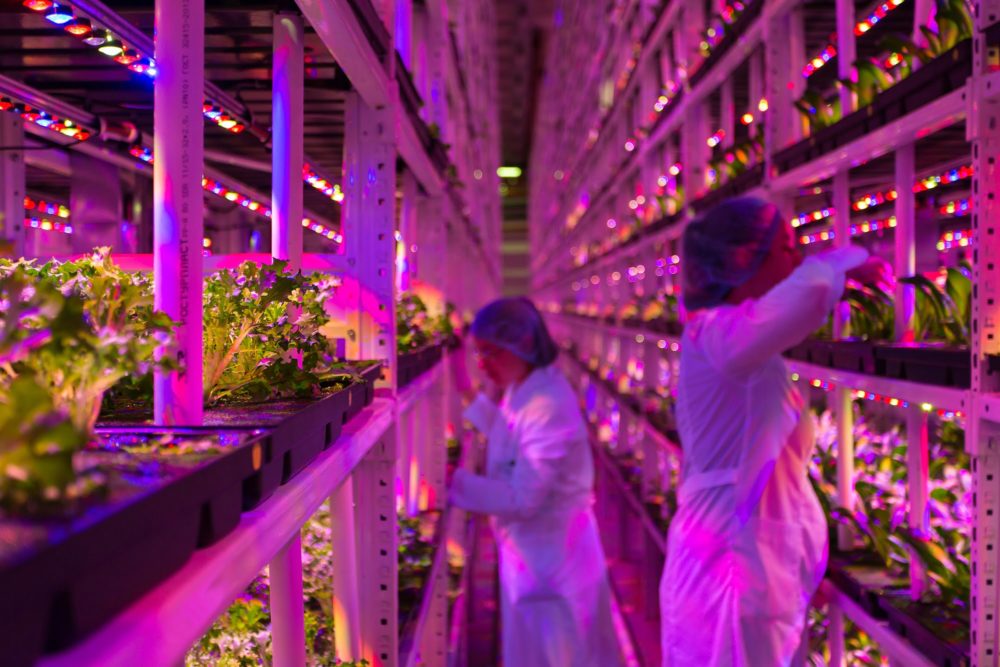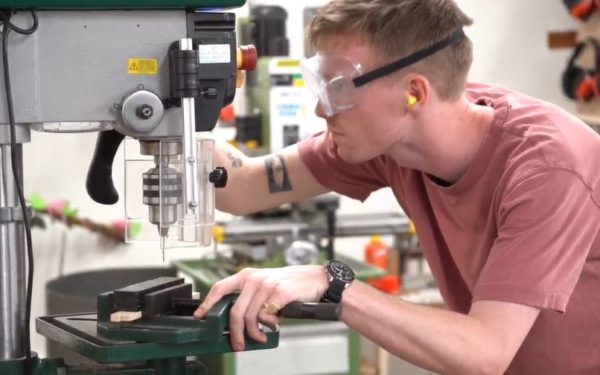
Why is urban farming important?

Summer School 2022 Lead and Director of Innovation at TEDI-London, Professor Julie Bregulla unpacks some of the urban farming methods and technologies that engineers have developed and how they are critical for sustainable food production.
How often do you stop to think about where your food comes from? When so many of us access a huge variety of food products daily, from supermarkets to restaurants and even home deliveries, it can be easy to overlook the whole process. Yet, chances are, every meal you have has already made a long journey before reaching your plate.
Why does this matter?
With the steady rise in global temperatures, it is becoming increasingly important for us to put more thought into what we eat. Not only does transporting food across long distances release large amounts of CO2 into the earth’s atmosphere, but certain industrial farming methods – such as using synthetic fertilisers and burning crop residues – do too.
The contribution to climate change isn’t the only problem we face when it comes to food production; current agricultural methods use vast amounts of land and water to produce enough food for everyone. With the world’s population on track to reach almost 10 billion by 2050, the way we are farming now needs to change, as it won’t allow us to keep up with demand in the future. What’s more, it is predicted that 2050 will see 80% of all food being consumed by cities, meaning that cities will need to play a bigger role when it comes to food production.
What’s the solution?
As these issues are discussed more and more frequently, many people are changing their eating habits; whether this is by consuming more plant-based products, avoiding foods that aren’t locally sourced, or shopping more regularly to minimise food waste. We all have a responsibility to help where possible, and taking small actions makes a positive difference. However, there is only so much that can be done on an individual level, which is where urban farming comes in.
Urban farming is the practice of growing and distributing food within urban areas. Urban farms can be set up on rooftops, in basements, shipping containers, or even in abandoned tunnels or car parks. Engineers have an important role to play in facilitating this; creativity and technical skill are crucial when it comes to developing the methods and technologies used in urban farming environments. Without these, we wouldn’t be able to grow food without relying on large areas of farmland, water, or natural, outdoor weather conditions. But what are they?
Urban farming technologies and methods:
Hydroponics and aeroponics: These systems make it possible to grow plants without using soil. Instead, nutrients are delivered by adding them to water which the roots are submerged into, or by spraying them with a nutrient-heavy mist.
Energy management: These strategies prevent unnecessary energy use and energy waste –
– Passive energy: Using as many natural energy strategies – such as solar power – as possible to power urban farms helps to improve sustainability.
– Climate control and monitoring: Generating the most efficient and productive conditions for plant growth helps them to mature more quickly, meaning that less energy is used per food product.
LED lighting: Energy efficient bulbs can be used to optimise the lighting type and intensity for the plant throughout its growing cycle. Different light intensities can alter the characteristics of the plant, such as producing sweeter tasting food.
Automation: Automated systems can be used to varying degrees, depending on the level of investment available. They can help to improve efficiencies and increase yield. For instance, in early growth stages, seeds need dimmer light compared to brighter light needed for flowering.
Water harvesting: This involves re-using the water that supports plant growth to make sure it isn’t wasted.
– Drip irrigation: This technique involves optimising and managing water using a drip feed system, which only dispenses water when it is needed.
Are there any other benefits?
Urban farming can help reduce our carbon footprint, both by reducing the need to transport food and by using more environmentally friendly farming methods. It can also provide better food security, as growth requires considerably less space, can be done locally, allows for resources to be recycled and reused, and doesn’t depend on specific seasons or weather conditions.
Other benefits in addition to these are:
Community participation: with more local farms emerging in urban areas, communities that have limited access to green spaces can observe and learn about plant growth, or even help with farming initiatives in their local area. Not only does increasing time spent in nature offer significant mental health benefits, but meeting new people and working towards a common goal helps people to feel like part of a community.
Education: urban farming participation can extend even further and provide educational value within local communities. Through public workshops and school visits, people can be encouraged to grow their own food and make more informed choices in relation to what they eat.
Food quality: when food is grown closer to where it is eaten, it will spend less time in transportation, making it fresher and riper, and therefore more nutritious.
Learn more about our 2022 Summer School: Urban farming to foster resilient cities.
More News articles


Student perspective: Starting a TEDI-London degree in January
